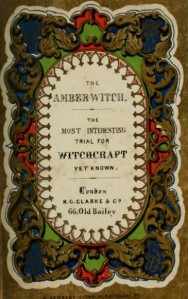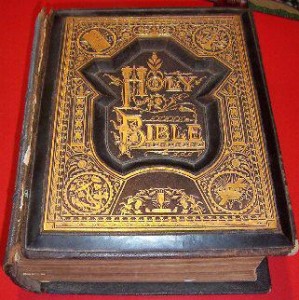Bestsellers like “Misquoting Jesus” by Bart Erhman and “God is Not Great” by Christopher Hitchens are presented with all the fanfare of revolutionary new scholarship. These antichristian polemics are hawked as “revealing the hidden contradictions of the Bible” and “how religion poisons everything” yet the issues expressed are neither concealed nor venomous. While sensational titles and viral marketing may reap revenues the vast majority of their contentions are the long discredited canards of 19th century German higher criticism being recycled to a new generation.
Erhman’s brand of criticism is derivative of German writer David Friedrich Strauss (1808 – 1874) who scandalized Europe with his interpretation of the “historical Jesus”. Strauss had been trained in Hegel’s dialectic philosophy (thesis + antithesis = synthesis) not only denied the deity of Christ, he asserted that the Gospels were “myths,” a synthesis between the facts of Jesus’ life (thesis) and the disciples’ faith (antithesis). Ehrman is basically following suit in the 21st century.
Like Erhman’s best sellers Strauss’ “The Life of Jesus, Critically Examined” was a sensation. One reviewer called it “the Iscariotism of our days” and another “the most pestilential book ever vomited out of the jaws of hell.” When Strauss was elected to a chair of theology in the University of Zürich, his selection provoked such a hullabaloo that the school retired him before he began his duties. In contrast, today Erhman chairs the department of religious studies at the University of North Carolina deep in the Bible belt.
Liberal higher criticism treats the Bible as a flawed piece of religious propaganda created for various human motives. A major presupposition of higher critics is that they can confidently determine authorship and authenticity. For instance, the scholars of the Jesus Seminar have determined that only twenty percent of what the Gospels attribute to Jesus was actually said by him[i]. Are they really that good?
A Dusty Old Manuscript
While digging around in the church basement, Johannes Wilhelm Meinhold (1797-1851) claimed to have discovered the long lost manuscript of a 17th century minister, Abraham Schweidler. The manuscript spins an enticing yarn. The Reverend almost loses his only child Maria to a plot by a unrequited suitor accusing her of witchcraft. Under the threat of torture Maria, entirely innocent, confesses to being a witch. While on the way to her doom, she is rescued at the last minute by a young hero who reveals the evil plot against her. Described as “the most interesting trial for witchcraft ever known”, church leaders had apparently urged Meinhold publish the story for its instructional value.[ii]
The Amber Witch is a Gothic novel written in 1839 by Meinhold. Because the old manuscript was incomplete, Meinhold allegedly supplied details in the style of author and finished the story for dramatic purposes. In a direct challenge to the “modern documentary critics” Meinhold wrote in the preface to the novel:

I have therefore attempted, not indeed to supply what is missing at the beginning and end, but to restore those leaves which have been torn out of the middle, imitating, as accurately as I was able, the language and manner of the old biographer, in order that the difference between the original narrative and my own interpolations might not be too evident. This I have done with much trouble, and after many ineffectual attempts; but I refrain from pointing out the particular passages which I have supplied, so as not to disturb the historical interest of the greater part of my readers. For modern criticism, which has now attained to a degree of acuteness never before equalled, such a confession would be entirely superfluous, as critics will easily distinguish the passages where Pastor Schweidler speaks from those written by Pastor Meinhold.[iii]
When it first appeared the German critics believed it to have been an authentic historical document. The work then attracted critical notice, not only for the dramatic nature of the narrative, but also for the arguments as to which parts of it were original and which ones were Meinhold’s own reconstructions of the original 17th-century style. Sound familiar?
It was a hoax! Meinhold had indeed written the whole thing. The forgery was done with great skill and detail using the language and expressions that would be common to the period it is set in. The author’s intention had been to set a deliberate “trap for the disciples of David Strauss and his school who pronounced the scriptures of the Old and New Testament to be a collection of legends from historical research assisted by internal evidence”. Even when he admitted that it was a deliberate hoax the critics argued against him for its authenticity! It soon became obvious that The Amber Witch was a hoax. As the popular press reported in the late 1840s:
“Meinhold did not spare them [Strauss and his disciples] when they fell into his snare and made merry with the historical knowledge and critical acumen that could not detect the contemporary romancer under the mask of two centuries ago, while they decide so positively as to the authorities of the most ancient writings in the world.”[iv]
He made a brilliant example out of Strauss and his school of criticism. This begs the question: if these critics could not accurately detect a very recent text, why should we trust atheist scholars’ opinions over those of the disciples and early church fathers? Perhaps when Jesus refers to one Isaiah as having written the book of Isaiah and Moses as the author of the Torah, we should simply take him at His word. Can the Jesus Seminar or Bart Ehrman really determine what Jesus did and did not say?
Not at all, they are only chasing the Amber Witch.
[i]Wilkins, Michael J., and J P Moreland. Jesus Under Fire. Grand Rapids, MI: Zondervan Publishing House, 1995.p.12
[ii]Laurita, Paula. The Amber Witch Hoax. http://www.bellaonline.com/articles/art35746.asp (accessed 04 22, 2010).
[iii] Meinhold, W. The Amber Witch: The most Interesting Trial for Witchcraft Ever Known. London: H.G. Clarke and Co., 1844.
[iv] Agnew, John Holmes, and W H Bidwell, “The Author of the Amber Witch.” Eclectic Magazine: Foreign Literature Science ad Art Vol 21, September 1850: 419.





